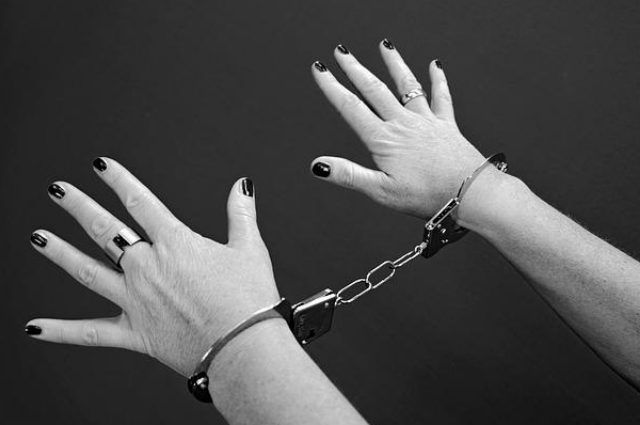
Image by Klaus Hausmann from Pixabay
Nobody tried to revive the baby. Nobody tried CPR." Louise's daughter died during childbirth after she went into labor at Styal prison. This is just one of such unfortunate events which happen very often when pregnant women are imprisoned. Miscarriages are very common, many pregnant women die during childbirth, and sometimes the newborn dies too. In 2013, Nadine Wright, an inmate at HMP Peterborough, miscarried in prison and the guards left her to clean up the blood and fetus. Little consideration has been given to the different needs and problems of imprisoned women as opposed to men. This omission may be a reflection of the fact that women prisoners are a small minority of the overall prison population. However, the number of women and girls in prison has increased by 50% since 2000. In India, only 15 States/UTs have Women Jails, the rest of 21 States/ UTs have no separate Women Jails. There is a lack of women prison officers and women doctors in prisons all around the world and thus, male officers are involved in guarding women prisoners. This results in sexual harassment and rape of women prisoners by those officers. As per an Amnesty International USA report, "Sexual Assault and Misconduct Against Women in Prison", in federal women’s correctional facilities, 70% of guards are male and there is an imbalance of power between inmates and guards resulting in the use of direct (physical) and indirect force due to prisoners’ total dependency on officers for necessities and the guards’ ability to withhold privileges. Some women are coerced into sex for favors such as extra food or personal hygiene products, or to avoid punishment.
Even when it comes to women, minorities amongst women (based on race, sexual orientation, etc.) are even more vulnerable. Women that do not fit the “norm”, such as lesbians, face an increased risk of torture and abuse. In India, even the Model Prison Manual, 2016 states that “Habitual offenders, prostitutes, and brothel keepers must also be confined separately.” This segregation of prostitutes is a cause of harassment and sexual abuse faced them. In the US Robin Lucas, who is a lesbian, was placed in a men’s prison where male guards allowed male inmates to rape her. The male guards taunted her about her same-sex relationship, saying to her “maybe we can change your mind”. This is the situation that exists in a developed country like the US and the situation in underdeveloped countries is even worse. In Nigeria, where Amnesty International had to intervene as there were reports of sexual violence against children and women by security agents and inmates at two high-security prison facilities in Borno State, Nigeria, where civilians were arrested due to claimed links to the Boko Haram armed group. On interviewing some of the female detainees they explained that while the soldiers did not use physical force to make women have sexual relationships with them, it was not possible to refuse sex due to their circumstances.
Even though there are international documents like- the Bangkok Rules (2011), which lay down rules for the treatment of women in prison and prescribe certain non-custodial measures for women offenders, and the Nelson Mandela Rules (2015) which set out the international minimum standard for the treatment of prisoners including women, most of the nations are far behind in the actual implementation of these standards. Treating men and women prisoners, in the same manner, is not "equality" as women prisoners have special needs which must be considered before imprisonment. Adequate provisions must be made for pregnancy and childbirth in prison including medical, dietary, and accommodation-related improvements. Children of prisoners, both, the ones living with them and the ones living outside, should never be treated as prisoners themselves. To reform and rehabilitate women prisoners certain reforms are required. There should be an increase in the number of women staff in prisons and regular inspections of prisons should be undertaken to ensure that the rules are being followed. The following quote by Nelson Mandela is very relevant to conclude with:
"No one truly knows a nation until one has been inside its jails. A nation should not be judged by how it treats its highest citizens but its lowest ones."
